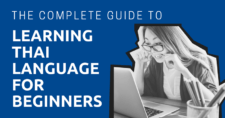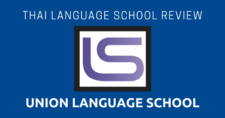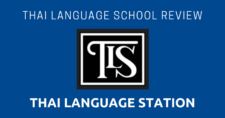A friend asked me the difference between the two words Thais use to mean “international”.
The most familiar Thai word for “international” is นานาชาติ /naa-naa-châat/.
All (every): นานา /naa-naa/
Nation: ชาติ /châat/
The reason that the word นานาชาติ /naa-naa-châat/ is most familiar to Expats is probably because of the term โรงเรียนนานาชาติ /rohng-rian naa-naa-châat/: international school (โรงเรียน /rohng-rian/) school).
There are many international schools in Thailand these days but when I first came here there was only a few in the whole country. One of them was “The International School Bangkok” or “ISB”, which of course still exists until this day. Its common name in Thai is โรงเรียนนานาชาติ /rohng-rian naa-naa-châat/, of course. Check out their cool website.
The second “international” word is สากล /sǎa-gon/ meaning universal, worldwide, used by all. Although this word does not specifically mean “international” it sometimes can be translated as such.
One use of the term สากล /sǎa-gon/ is in the term เพลงสากล /playng sǎa-gon/.
The word เพลง /playng/ means “song” or “music” and to differentiate between Thai music and “world” or “international” or “western” music the term เพลงสากล /playng sǎa-gon/ can be used.
Another term is one I hear quite often: มาตรฐานสากล /mâat-dtrà~tǎan sǎa-gon/.
The word มาตรฐาน /mâat-dtrà~tǎan/ means “standards”. You’ll hear this term when you go to buy some kind of equipment or building material and the salesman wants you to trust the quality of what you are buying by telling you that in the manufacturing of this product they use มาตรฐานสากล /mâat-dtrà~tǎan sǎa-gon/, or international or universal standards.
One example using สากล /sǎa-gon/ is the term Universal Product Code (UPC) or รหัสสากลสำหรับผลิตภัณฑ์ /rá~hàt-sǎa-gon-sǎm-ràp-pà~lìt-dtà~pan/. We also refer to this in English as a “bar code”. This long word is broken down into:
Code: รหัส /rá~hàt/
Universal: สากล /sǎa-gon/
For: สำหรับ /sǎm-ràp/
Product: ผลิตภัณฑ์ /pà~lìt-dtà~pan/
(The word ผลิต /pà~lìt/ means to manufacture or to produce)
But the Thai word for “bar code” that I would use (the one easiest for this old brain to remember) is บาร์โค้ด /baa-kóht/. It’s a borrowed word and most Thais would use it too.
How do you use the Thai words for Temporary and Permanent?
Depending on our plans we could be in Thailand on a temporary or a permanent basis.
Temporary, short term: ชั่วคราว /chûa-kraao/
Permanent, settled, stable: ถาวร /tǎa-won/
One could say:
ฉันอยู่ประเทศไทยชั่วคราว
chan yòo bprà-tâyt tai chûa kraao
I am living in Thailand temporarily (for a short time).
or:
ฉันอยู่ประเทศไทยถาวร
chan yòo bprà-tâyt tai tǎa-won
I am living in Thailand permanently (forever).
But there is a caveat or two with these words.
Be careful when using the word ชั่วคราว /chûa-kraao/. Thais absolutely love play on words. Just as there is an English idiom “short time”, the Thais use ชั่วคราว /chûa-kraao/ to mean the short time one might spend with a questionable (and paid) companion of the night.
The term ถาวร /tǎa-won/ means “permanent” but I am rather reluctant to use this term since I live in a Buddhist culture which teaches that nothing is “permanent” and that all things change. The term อนิจจัง /à-nít-jang/ (impermanence) is a popular expression and is one of the Buddhists 3 states of being.
When something bad happens that we have no control over a Thai might use the exclamation อนิจจัง! /a-nít jang/ which is the equivalent to the English saying “Sh*t happens!”








